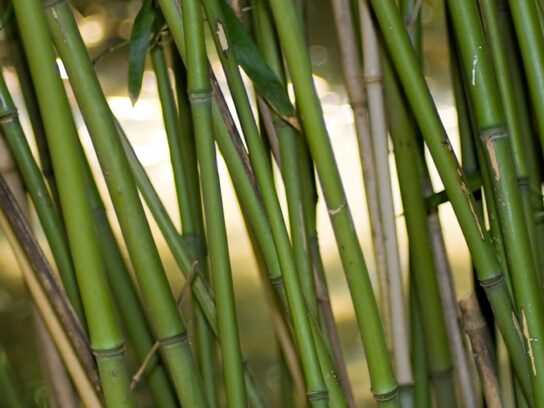
Most people testifying on a bill that would ban the sale of invasive bamboo and, instead, promote the use of sustainable native plants said they were in support of the legislation, but wished it was even stronger.
The Native Plant Protection Act would prohibit the commercial sale of bamboo. “[It’s] a major problem and headache for many people,” said Montgomery County Councilmember Evan Glass, who introduced the bill.
Bamboo spreads quickly underground and can damage structures and overwhelm native vegetation. It is difficult to remove and must be completely dug out.
The proposed act would regulate weeds and invasive bamboo, exempt native species from the requirements for weed removal, prohibit and provide penalties for selling invasive bamboo and generally amend the laws regarding vegetation in the county.
If adopted, landowners would be required to control their weeds, including plant growth taller than 12 inches and within 15 feet of a property boundary, which could be costly for homeowners who opt to hire professional landscapers to do the job effectively.
“We know that invasive plants have a significant threat on trees and forests which also possesses a significant threat to the Potomac watershed,” noted Anna Mudd, senior policy director at Potomac Conservancy.
“This bill lacks the strength needed,” said Lauren Carranza, who spoke during Tuesday’s public hearing. “Bamboo has been a problem in our region for decades, and it’s only getting worse.” She would like language incorporated into the bill that outlines how the ban would be enforced.
Attorney Jesus Zelaya was the only one to speak in opposition. He said he represented the owners of a quarry in the county where bamboo has been spreading “for decades.” It migrated onto the property, he said, adding that removing it would cause undue costs and hardships.
The goal is to promote biodiversity and support pollinators, Glass said when first presenting the bill.
“Expanding the use of native plants is essential to sustaining biodiversity, building climate-resilient landscapes, and supporting pollinators. Native trees, shrubs and grasses protect soil from erosion, reduce runoff and flooding, improve air quality and provide critical food and habitat for bees, butterflies and birds,” Glass previously said.


Comments are closed.